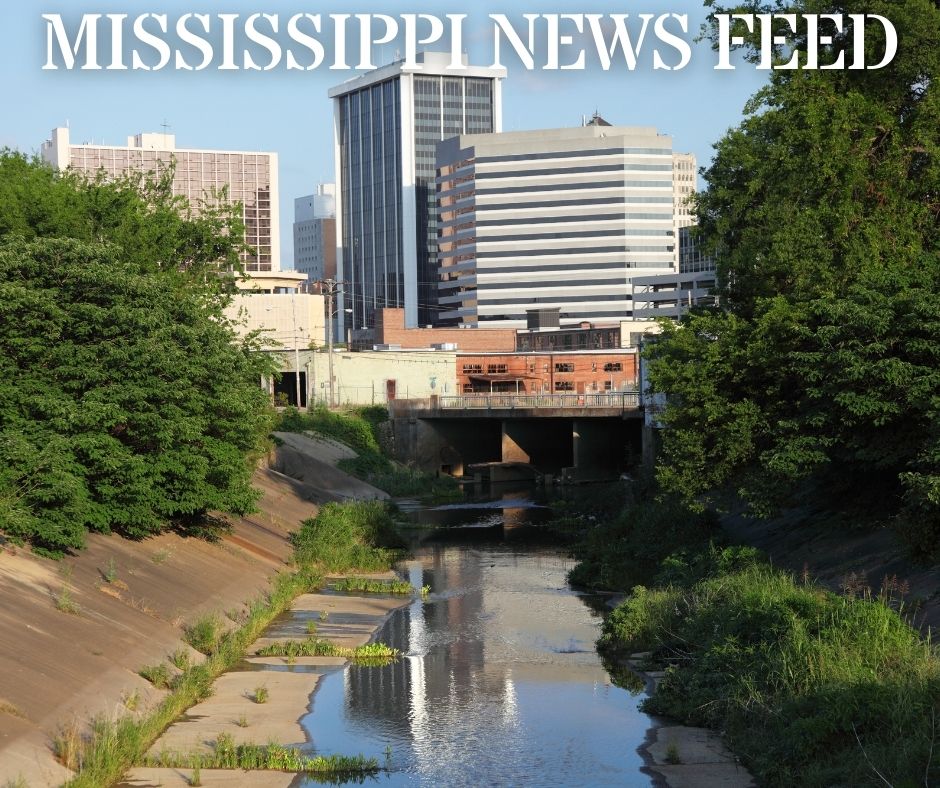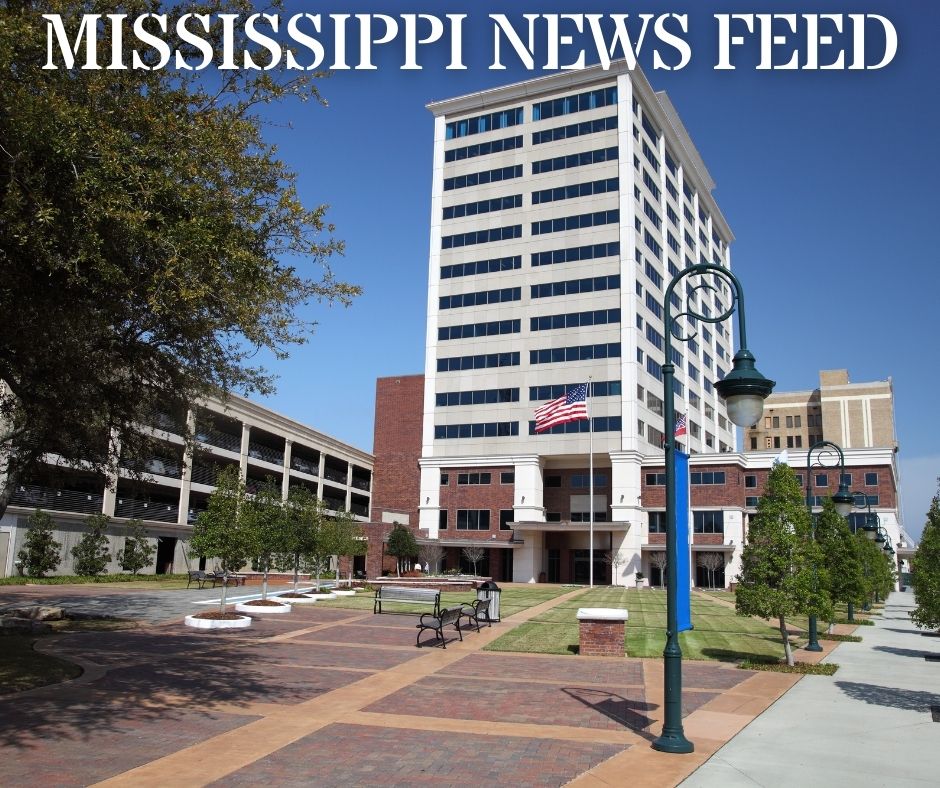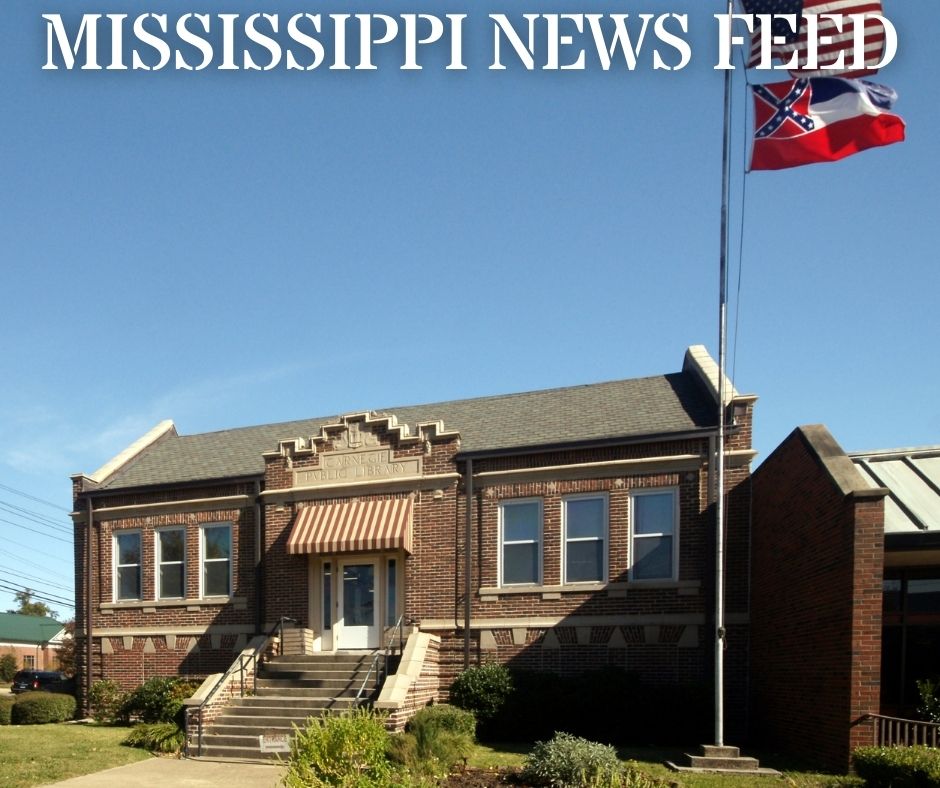Mississippi Today
Federal judges order Mississippi Legislature to create more Black districts, may prompt 2024 elections

The Mississippi Legislature has been ordered to create more Black-majority House and Senate Districts by a federal three-judge panel.
“The court rightly held that the Mississippi Legislature used the redistricting process to dilute the power of Black voters. Those legislative districts denied Black Mississippians an equal voice in state government,” said Jarvis Dortch, executive director of the ACLU of Mississippi.
The judges ruled in a lawsuit filed on behalf of the Mississippi Conference of the NAACP and Black voters from across the state that the districts that were drawn in 2022 by the state Legislature diluted Black voting strength. Legislative redistricting occurs every 10 yeas after the federal census.
In the ruling, released late Tuesday, the federal panel said it would give the Legislature the opportunity to redraw the districts, but added, “It is the desire of this court to have new legislators elected before the 2025 legislative session convenes, but the parties can make whatever arguments about timing they conclude are valid.”
The state, which opposed the lawsuit, can argue for more time to redraw the districts. Or the state could appeal the ruling to the U.S. Supreme Court.
MaryAsa Lee, a spokesperson for Republican Attorney General Lynn Fitch's office, said the agency is currently reviewing the court's opinion. She did not say whether Fitch wanted to appeal the order.
The federal panel did not accept all of the arguments of the NAACP and other plaintiffs. But the panel ruled that Black-majority Senate districts should be drawn at least in the DeSoto County area in north Mississippi and in the Hattiesburg area in south Mississippi. In addition, a new Black majority House district should be drawn in the Chickasaw County area in northeast Mississippi.
The state has a Black population of about 38%. Currently there are 42-Black majority districts in the 122-member House and 15 Black majority districts in the 52-seat Senate.
Multiple groups represented the NAACP and other plaintiffs in the case.
The three judges serving on the panel were all appointed by Republican President George W. Bush.
Charles Taylor, executive director of the Mississippi State Conference of the NAACP, said he was pleased with the decision “although we wish the court had gone further.”
The NAACP and others argued the totality of the 2022 redistricting by the Legislature diluted Black voting strength. Groups argued by “packing” a large percentage of Black voters in a concentrated number of districts it deprived them from having an impact in other districts. The three judge panel did not accept the total argument of the plaintiffs.
But still, the people who brought the lawsuit maintained the decision of the federal panel was a victory for Black Mississippians.
“This ruling brings us much closer to the goal of ensuring that Mississippi has a fair number of majority-Black legislative districts to go along with the majority-white ones,” said Rob McDuff, an attorney with the Mississippi Center for Justice.
READ MORE: Lawsuit claiming Mississippi Supreme Court districts are discriminatory is set for August
The Lawyers' Committee for Civil Rights Under Law, the American Civil Liberties Union, ACLU of Mississippi, the law firm of Morgan, Lewis & Bockius, Mississippi Center for Justice and civil rights attorney Carroll Rhodes all participated in the case.
“This ruling affirms that the voices of Black Mississippians matter and should be reflected in the state Legislature,” said Jennifer Nwachukwu, of the Lawyers' Committee for Civil Rights Under Law Voting Rights Project.
The next step will be for either the state to appeal or present arguments to the federal panel on why the new districts should not be drawn and filled via election before the 2025 legislative session.
This article first appeared on Mississippi Today and is republished here under a Creative Commons license.
Mississippi Today
On this day in 1957


JULY 6, 1957

Althea Gibson became the first African American to win the women's singles title at Wimbledon and became the top female tennis player in the world. Just six years earlier, she had become the first black player to compete at Wimbledon.
Born in South Carolina, she grew up in Harlem, where she loved table tennis. A local musician invited her to play tennis, and she became so talented that a year later, she won a local tournament sponsored by the American Tennis Association (formed by African Americans), later winning 12 ATA titles in just 13 years.
Despite her talent, much of the tennis world remained closed off to her. The breakthrough came in 1950 when tennis legend Alice Marble lambasted the sport for barring Gibson from the world's best tournaments. The tennis world opened its doors, and Gibson became a Top 10 player in the U.S.
In 1956, she won the French Open. After winning both the women's singles and doubles at Wimbledon in 1957, she was welcomed with a ticker tape parade in New York City. She went on to win 56 singles and doubles championships before turning pro in 1959.
Although she declared that she never considered herself a crusader, there is no question that she opened the doors for many others. She even tried golf, becoming the first black woman to compete on the pro tour.
After she retired, she was inducted in 1971 into the International Tennis Hall of Fame. She died in 2003 at the age of 77. In 2013, the U.S. Postal Service issued a stamp in her honor. Venus Williams said Gibson has been an inspiration to her and her sister, Serena.
This article first appeared on Mississippi Today and is republished here under a Creative Commons license.
Did you miss our previous article…
https://www.biloxinewsevents.com/?p=372977
Mississippi Today
As heat rises, inmates and staff swelter in Mississippi’s prisons
As of Friday, five of the six locations where Mississippi's prisons are located are under a National Weather Service heat advisory.
And the Mississippi Department of Corrections has no clear timeline as to when it will install air conditioning to bring relief to inmates and staff.
“We are continuing to explore our options to provide air conditioning where possible; however, there is no timetable for that installation at this time,” MDOC spokesperson Kate Head wrote in an email.
One woman incarcerated at the women's prison at the Central Mississippi Correctional Facility in Pearl said relief from the heat is hard to come by and the temperatures inside are worse than outside without any shade or trees. The woman asked not to be named for fear of retaliation.
“It's actually worse (in) here,” she said Tuesday. “The heat just hits you in the face.”
The heat index, also known as what temperature feels like on the body, takes into account humidity and air temperature. Friday's advisory was said to expect index temperatures up to 110.
According to the Centers for Disease Control and Prevention, people who are at an increased risk of heat-related illnesses include those without access to air conditioning, those over the age of 65 and people with chronic conditions – populations that include incarcerated people.
Last year was the incarcerated woman's first summer at the prison, and she witnessed people pass out or experience seizures because of the heat.
Head, the MDOC spokesperson, wrote in an email that the department is taking steps to mitigate the heat by providing incarcerated people with water, ice and fans.

This is similar to what has been done in previous years, but some incarcerated people have said that distribution of ice isn't always regular or enough to support hundreds of people and that fans move hot air around. MDOC did not respond to these concerns Friday.
Air conditioning installation has been completed at the women's prison at CMCF in the church, school and dining areas, the incarcerated woman said. Several weeks ago it was completed in her housing zone, she said, but the AC there has not been turned on.
Tuesday evening, the prison superintendent visited the building where the incarcerated woman lives and told residents the air conditioning would not be turned on for the foreseeable future because it requires a part that is on backorder, the woman said.
The woman has also seen how three emotional support dogs trained by seminary students are moved to air conditioned areas and provided pools of water to stay cool. She doesn't understand how the animals get access to the relief but she and the other women don't.

“We get the short end of the stick on everything,” she said, in reference to how the men at CMCF already have AC and the dogs in the women's prison get access to it.
MDOC did not respond to questions about the air conditioning and the dogs' access to it.
Last year as air conditioning was installed at three-fourths of the Mississippi State Penitentiary at Parchman, Commissioner Burl Cain estimated that by sometime in 2025, AC would be coming Parchman's Unit 29, South Mississippi Correctional Institute in Leakesville and other facilities, so long as funding was available to support those upgrades.
“It just takes a good while to get it all done,” he said in an April 2023 interview with Missisisppi Today. “That's just the way the funding is.”
At Parchman, the heat index was above 130 degrees – within the extreme danger category where a person's risk of heat-related illness is likely – for 25 of the past 72 hours, according to the National Weather Service records.
On four separate instances Wednesday afternoon, the heat index reached 185 at Parchman, according to weather data.
Pictures from Parchman's Unit 29, which doesn't have air conditioning, shows how men have secured 8-inch fans purchased from the commissary to the bars of their cells and placed their mattress on the floor beneath the fan, which some have told advocates is how they get relief from the heat.
The majority of Parchman has had air conditioning since last summer, but Unit 29 is part of the group of prisons that are expected to get AC sometime in the future.
At all prisons, an 8-inch fan is available to buy from the commissary for $29.95, which is among one of the most expensive on the prison's commissary list compiled by The Appeal.
Even if an incarcerated person has a job, Mississippi prison industry jobs can pay between 20 cents and $1.30 an hour, which falls within an estimated national average calculated by the Prison Policy Initiative. The group also estimated regular prison jobs nationwide have an estimated range of 14 cents and 63 cents an hour.
Privately operated Eastern Mississippi Correctional Facility has AC including in its housing units, but family members told advocates that since the end of May, the air conditioning has not been functional.
The maximum daily temperatures in Meridian, where the prison is located, have been above 90 degrees since the end of May, according to the National Weather Service.
Meridian is also under a heat advisory, and within the past three days, the highest heat index was 107 degrees – 95 degrees at 75% humidity, which is in the danger category for heat-related illnesses.
Management and Training Corp. spokesperson Emily Lawhead said technicians have diagnosed problems with air conditioning units and will install new units when they arrive.
“We're working hard to get all AC units back online as soon as possible,” she wrote in an email.
In the meantime, Lawson said cold water and fans are available, and Gatorade is provided to staff and incarcerated people for them to stay hydrated. Swamp coolers are cooling the air in areas where AC units are waiting to be repaired, she said Friday.
Heat in prison is a national issue that Families Against Mandatory Minimums, which represents incarcerated people and their families, and One Voice United, a group representing corrections staff, have teamed up to address.
The Safer Prisons, Safer Communities campaign is highlighting a nationwide crisis through overcrowding, understaffing and deteriorating conditions that make prisons unconducive to rehabilitation and create poor conditions for incarcerated people, prison staff, families and communities.
Andy Potter, executive director of One Voice United and a former Michigan corrections officer, recognizes prison infrastructure can be old and it can be expensive to install air conditioning.
But he said it's not enough for incarcerated people and the corrections staff to rely on fans, water bottles and Gatorade to stay cool. The incarcerated and staff do not have the freedom or ability to seek relief in a similar way as those not in a prison system can do, Potter said.
Daniel Landsman, vice president of policy for FAMM, said air conditioning can help decrease incidents of violence and fatalities, which research has found increases with heat.
“Heat is just going to make all the things we are experiencing in our prison system worse,” he said.
This article first appeared on Mississippi Today and is republished here under a Creative Commons license.
Mississippi Today
On this day in 1827


JULY 5, 1827

A day after those enslaved were freed in the state of New York, 4,000 Black Americans marched along Broadway through downtown streets with a grand marshal carrying a drawn sword. They arrived at the African Zion Church, where abolitionist leader William Hamilton said, “This day we stand redeemed from a bitter thralldom.”
Celebrations took place as far away as Boston and Philadelphia. In New York's capital, Nathaniel Paul, pastor of the First African Baptist Society, declared, “We look forward … (to) when this foul stain will be entirely erased, and this, the worst of evils, will be forever done away … God who has made of one blood all nations of men, and who is said to be no respecter of persons, has so decreed; I therefore have no hesitation in declaring this sacred place, that not only throughout the United States of America, but throughout every part of the habitable world where slavery exists, it will be abolished.”
Among those freed by this act? Sojourner Truth, who was born into slavery and had escaped to freedom just a year earlier. The Fifth of July is still recognized and celebrated in New York City.
This article first appeared on Mississippi Today and is republished here under a Creative Commons license.
Did you miss our previous article…
https://www.biloxinewsevents.com/?p=372793
-
Mississippi News1 day ago
Two inmates escape from Mississippi detention center
-
Local News6 days ago
Hurricane Beryl strengthens into a Category 4 storm as it nears the southeast Caribbean
-
Our Mississippi Home6 days ago
Recipes to Get You Ready for July 4th
-
Local News6 days ago
Mississippi sets new laws on Medicaid during pregnancy, school funding, inheritance and alcohol
-
Mississippi News3 days ago
Case hits close to home in Columbus
-
Kaiser Health News3 days ago
KFF Health News’ ‘What the Health?’: SCOTUS Term Wraps With a Bang
-
The Conversation5 days ago
How was popcorn discovered? An archaeologist on its likely appeal for people in the Americas millennia ago
-
Our Mississippi Home4 days ago
A Few of Mississippi’s Top Historical Sites to See

































